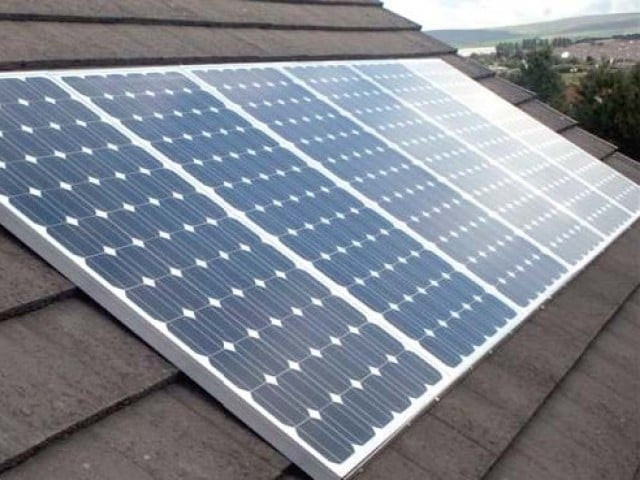Solar net metering adds Rs103b burden on grid power consumers
Solar net metering enables users to reduce power costs by supplying surplus energy to the grid, driving rapid adoption

Net metering has placed a financial burden of Rs103 billion on grid power consumers in Pakistan, prompting the government to consider a shift to a gross metering system, Express News reported on Monday.
Solar net metering, which allows users to offset electricity costs by feeding surplus energy into the grid, has seen significant growth.
Installed capacity rose from 321 MW in 2021 to 3,277 MW in 2024 and is projected to reach 12,377 MW by 2034. However, the system currently benefits only 0.6% of the nation’s 37 million electricity users.
The Power Division highlighted that in 2024 alone, net metering users contributed to a Rs103 billion cost that was borne by conventional grid consumers.
Officials warn that without policy reforms, this financial strain could increase to Rs503 billion over the next decade.
Major cities including Lahore, Karachi, Islamabad, Faisalabad, and Peshawar now account for 80% of the country’s net metering users, with the total number of such connections exceeding 226,440.
To alleviate the impact on grid users, the government is exploring the introduction of gross metering.
Under this system, the rate for electricity purchased from solar net metering users would drop from Rs21 per unit to Rs8–9 per unit.
Sources indicated that a policy shift is imperative to ensure the sustainability of the energy grid and prevent additional financial burdens on traditional power consumers.
The proposed reforms aim to balance the rapid adoption of rooftop solar installations with grid stability and affordability, ensuring long-term viability for Pakistan’s power sector.























COMMENTS (6)
Comments are moderated and generally will be posted if they are on-topic and not abusive.
For more information, please see our Comments FAQ